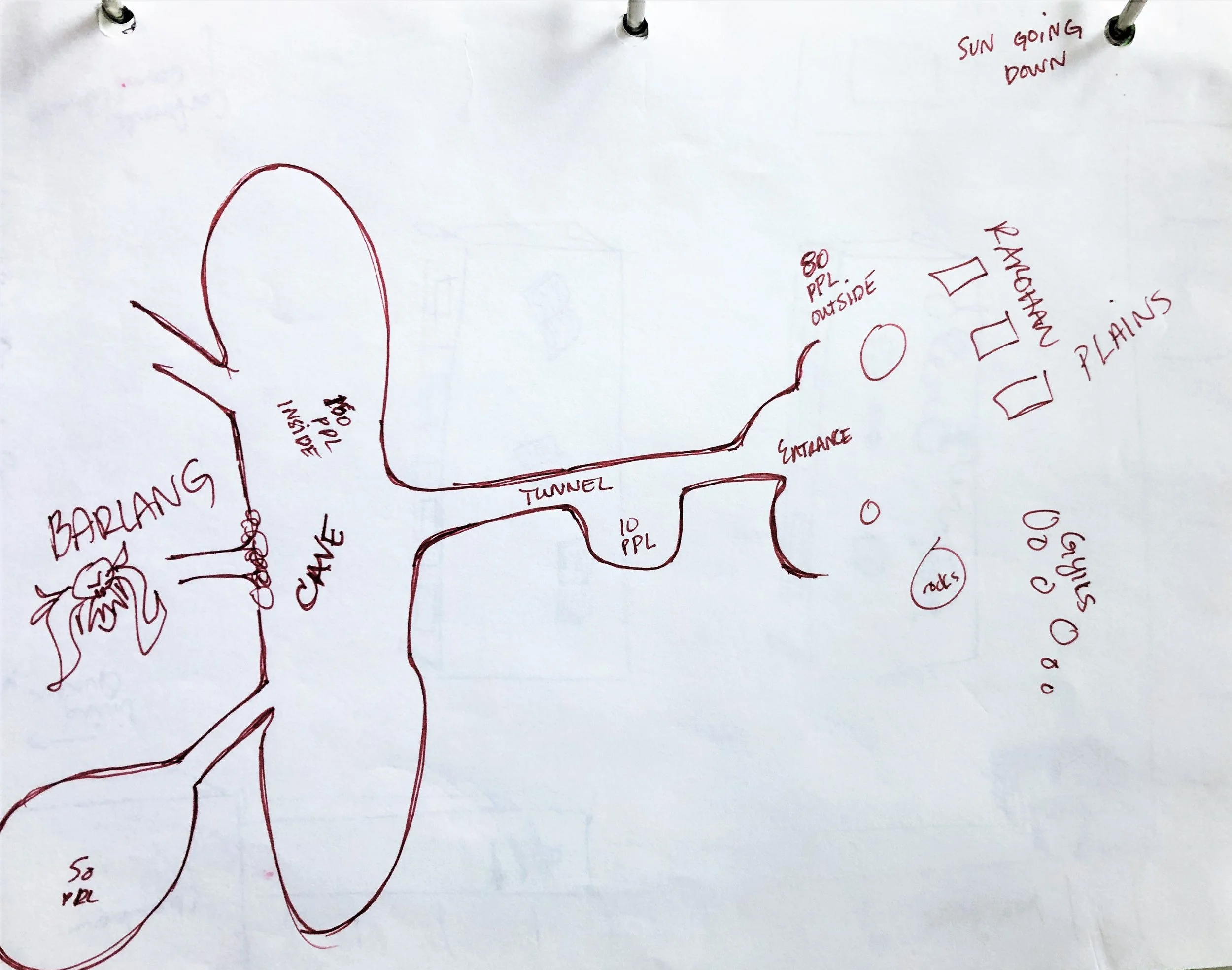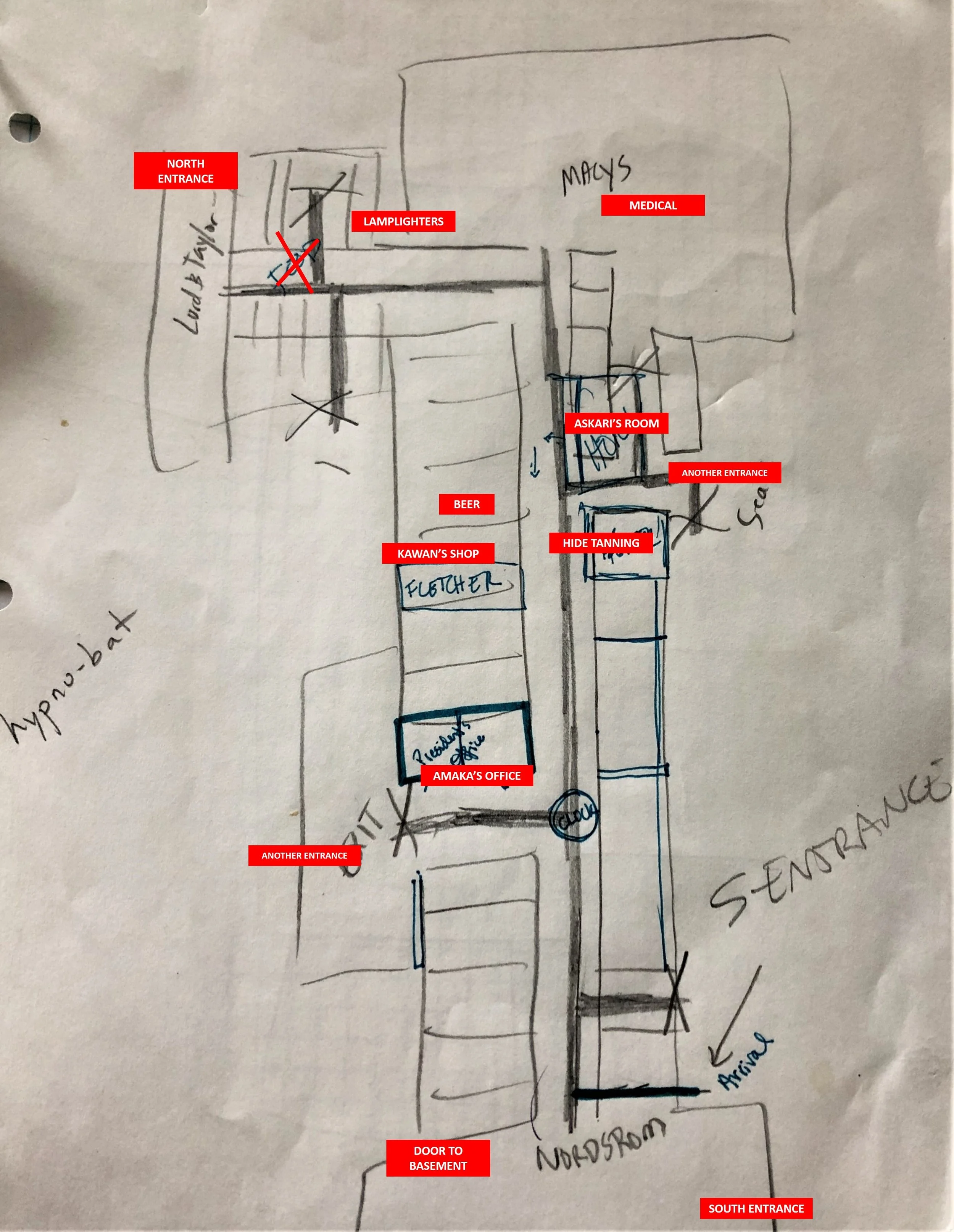To sign up for more tips on writing, click here!
“How to write the end of a book” is a phrase I’ve googled dozens of times. But most of the advice is for plotters. What if you’re a discovery writer or a pantser—what then?
This is also not about how to edit the ending of a book. A lot of advice out there is about perfecting your ending. But what if you’re 3/4 of the way through a rough draft, and you just … don’t … know?
I feel like I get to this place nearly every time I write a book. I’ve got thirty books under my belt and I still struggle. So I’m going to share a few strategies I use to get through that last 1/4 of a manuscript for the first time.
I am under no illusions that these will work for everyone. But if you’re just looking for ideas… maybe one of these will jog something in your brain.
The Sisyphus Method
Are you familiar with the myth of Sisyphus? This dude cheated death a bunch of times, and finally the gods condemned him to rolling a big rock up and down a hill for all eternity. This is sometimes how I think about putting words on the page—one at a time, one after another after another, over and over and over.
This strategy is the roughest, most brute force method I use. But it works, because I’m a pantser, and often I just need to start the work in order to get the words flowing. When I was a newer writer, sometimes I would use this method for hundreds or thousands of words before they started to flow more easily; now, it usually takes me only a few hundred furious words shoved up a hill before I realize where the story is headed.
Usually, to make this work, I begin with one of two things: a character name or a place descriptor.
This means that the first word might be “Askari…” (character name), and often the next word is either “was” or an action verb like “strode” or “ran.” Even in more emotional scene, it’s something like “hated” or distrusted” or “loved.”
In the case of a description, I might say something like “The sun” as the next thing, and again, an action.
The sun rose
The water lapped
The skyscrapers towered
The building exploded
Character name, action. Character name, action. Over and over and over.
Setting description, verb. Setting description verb. Over and over and over.
I didn’t say it had to be good—but that’s what revision is for. Sometimes, the goal is to simply get words on the page. And this method will do that for you.
Back-Plotting
But what if the goal isn’t to just get the words on the page? What if it’s to get the right words on the page? Or at least, close-ish to the right words?
The next method I regularly use, I call “back-plotting.”
I’m a pantser, so I don’t outline. But, sometimes sitting down and writing an outline of what I’ve already written is incredibly useful. I highlight things like the characters, where they’ve been, what they’ve done, why they’re doing those things—anything I know could play a role in the ending.
This does a couple of things for me:
It reminds me of details I wrote that I might have forgotten
It shows me the plot arc from a high-level perspective
It helps me slow down and look for any threads to pull that might be the perfect one to lead me to the climactic moment
It helps me review all the major characters, where they are and what their doing, and look for places character arcs need to be completed
It gives me a birds-eye view of all the moving pieces
Sometimes, to go along with this method, I’ll draw a map. I’ll ask myself where each major player is and what they’re doing there, and then say, “Where do they need to be and how are they going to get there?”
Okay, so this is basically plotting. But I don’t write it down in an outline form. Instead, I might make one or two notes just to remind myself of something, and then I dive back into the drafting.
Re-Reading
People have different opinions on re-reading. Some say you should never, ever re-read anything you wrote until you’re completely done with it. Other people say you should re-read what you wrote yesterday and then continue forward once you’ve reached the end of what’s there. Some suggest starting from the beginning if you’re having writers block, some say not to worry about what you wrote before and just write what you think you should write now (and go back and fix any inconsistencies). Some people say that if you re-read something, you risk getting stuck editing when you should be drafting the end; other people say that doing some editing helps them re-immerse themselves in the story.
My philosophy is that if I need to re-read something, I do. If I don’t need to, I don’t.
If I’m really struggling to write, sometimes I’ll re-read what I wrote before and it’ll show me where I need to go… but sometimes, I just fix some stuff and end up not making any progress.
It’s so easy to attach “right” or “wrong” to these methods but the truth is they’re all valid, and what works will not only vary from writer to writer, but can also vary for a single writer based on their mood, where they are in the process, and what the best process works for them.
Sometimes, I’ll even go back and read something I wrote on an entirely different project.
My advice is that if you want to try this, go for it, but try to pay attention to what’s happening in your brain when you do it. Are you getting hung up on stuff? Do you feel like the drains are clearing? Are you bored? Are you antsy? Do you hate it all? Do you love it all?
Then, if it makes you feel like you’re moving in the right direction, it might be a good strategy for you. But if it makes you feel like you’re moving in the wrong direction… ABORT! ABORT!
Put It On Ice (Or Don’t)
Yes, I know Stephen King said we should all write every day. But like… nah, bro. Lol.
I don’t write every day. I can’t write every day. If I wrote every day, I’d never get anything done.
One thing I’ve learned about my process is that I operate in bursts. Which means, if I’m stuck at a spot, especially the end, one really effective strategy for me is to take a few days off. Sometimes I’ll keep it to one day; other times, I’ll wait months to come back. This is why I work on many projects at once, so while one project is aging, percolating, I have something else to focus on.
That said, I have dozens of books and a lot of experience actually finishing projects behind me. So if you’re still on your first book, I don’t necessarily recommend this.
But at the same time… I do! The point here is to learn your process.
If you need to write every single day, or at least, show up to the page every single day in order to make progress, do it!
The one thing I will advise when it comes to waiting, and letting your manuscript sit for a bit—do it with intention. Decide when you’re going to come back to it, and follow through on that. Intentionally think about the book and the plot while you’re doing other things like washing the dishes, exercising, or taking a shower, even if the thought is just to review the problem you’re having with the story.
But always come back. Because the book won’t get written if you don’t write it.
Ounce of Prevention
This is a less helpful strategy for in the moment. But the thing is, so often we want a quick fix, when the best fix… is to do it right the first time.
But what does this look like? Especially for something like plotting a single book?
The thing is, unless you only ever plan to write one book, it’s important to remember that writing is a practice. The same way that learning to play an instrument involves listening to music, taking lessons, and practicing scales, learning to write—and subsequently to write the end of a book—involves learning new things about writing, reading other people’s work, and practice.
It’s not always possible to write every day, or even as often as you like. But there are other writing-related things you can build into your life. Things like:
Listen to writing podcasts at the gym
Follow other writers or teachers on social media
Listen to audio books when you’re driving to work
Think about plot, characters, and conflict when you’re watching TV
Notice the ways you tell stories about life or your day to your spouse or kids
Plan to attend writers conferences or workshops
Go to library events
Take classes on random things that interest you
Identify what you’re good at and see if you can use those strengths in your writing life
Tell your kids bedtime stories
Notice endings around you—marriages ending, lives ending, events ending, people transitioning from one stage of life to another—and try to pinpoint what makes those endings interesting, unique, or really boring
Writing doesn’t have to be all-consuming if you don’t want it to. And I’m not trying to suggest that your entire life should be devoted to writing (unless you want it to). But writing is a subconscious art, and the more conscious fuel we give our subconscious, the stronger and more effective it becomes.
Ultimately, the key is to find strategies that work for you—whether we’re talking about how often you write, what kinds of books on writing you read (or don’t read), whether or not you go to writing workshops, or what your writing process looks like.
This means, that if there is something that you know works for you, but someone else told you that you’re doing it wrong—ignore them. If it works for you, it works! So go do that thing.
But if you are looking for a new idea because what was working isn’t anymore, I hope this article gave you some ideas. Good luck, and keep writing!
To sign up for more tips on writing, click here!





















